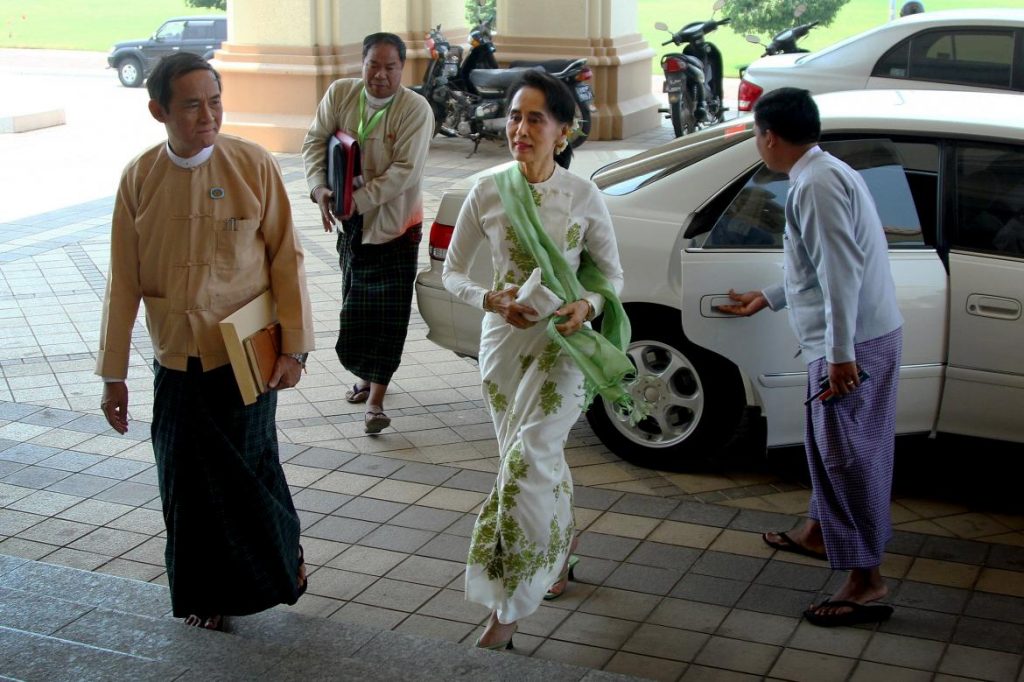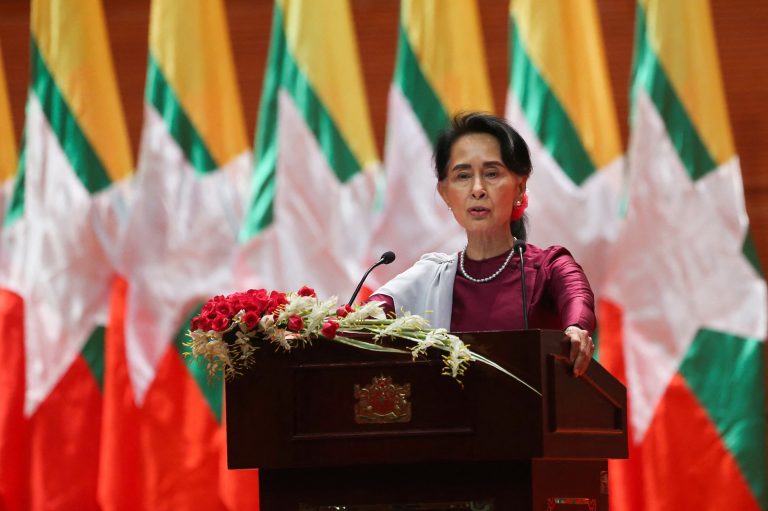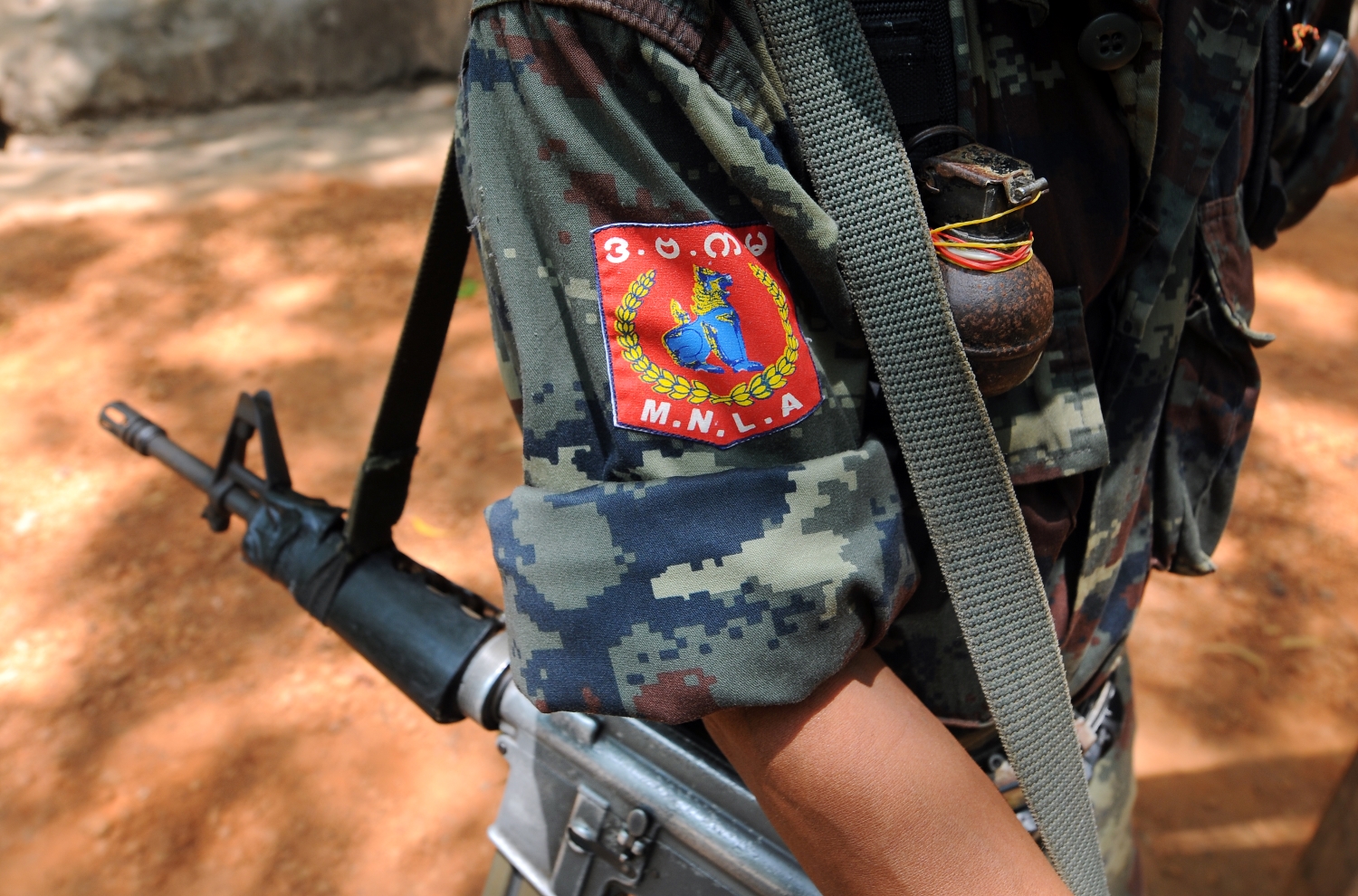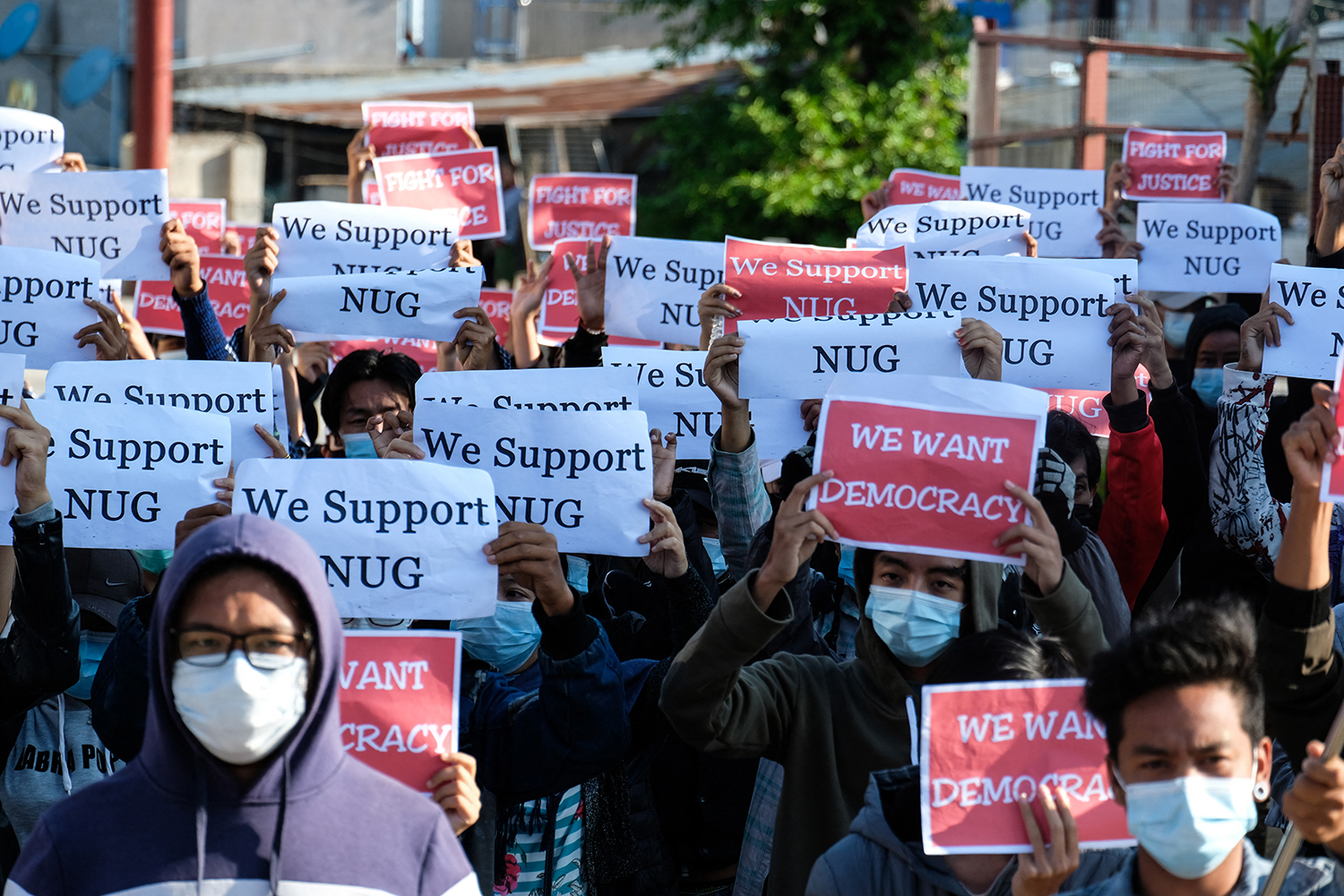Criticism and dismay have greeted the list of ministerial nominees chosen by National League for Democracy leader Daw Aung San Suu Kyi as carefully and methodically as her choice of President-elect U Htin Kyaw to serve as her proxy.
There was also criticism and confusion over the gradual release of information about the nominations, after the NLD announced the 21 ministries that will serve the next government before releasing its list of ministerial nominees, but without saying which portfolios they would hold.
What is virtually certain is that Suu Kyi will head four ministries: foreign affairs, education, electric power and energy and be the only minister of the President’s Office. Taking the foreign affairs portfolio is a strategic move that will enable her to sit on the powerful 11-member National Defence and Security Council, on which the military has six seats.
NLD appointees will account for five positions on the council, including the president, the speakers of the Pyithu Hluttaw and Amyotha Hluttaw and the foreign minister.
The council’s composition means that the military has the numbers to win any decision that goes to a vote but this has obviously not deterred Suu Kyi from wanting to be involved as foreign minister.
Support more independent journalism like this. Sign up to be a Frontier member.
Political analyst U Khin Zaw Win, director of the Tampadipa Institute, said Suu Kyi would have the advantage of being able to meet other members of the council regularly without the need to make appointments.
Serving as foreign minister would also provide opportunities for Suu Kyi to travel abroad and represent Myanmar at meetings of regional and international organisations.
Heading four ministries would be a daunting responsibility for most people and the NLD will need to appoint highly competent deputy ministers to ease the workload on Suu Kyi, should she take all the portfolios, as widely expected.
One woman in cabinet
The ministerial list shows that the NLD leader will be the only woman in the cabinet, in which there will be only one representative of the nation’s minorities, U Naing Thet Lwin, vice chair of the Mon National Party, who is widely expected to head the new Ministry of Ethnic Affairs. There is disappointment that Suu Kyi had not honoured election campaign promises to appoint more women and members of ethnic minorities to government.
“National reconciliation is the foundation of our democracy,” she told a rare news conference days ahead of last November’s election.
There is also dismay that the NLD did not include more members of the younger generation on its ministerial list.
Most of those on the list are in their 60s and 70s and are older than the military nominees to head the ministries of Defence, Home Affairs and Border Affairs.
“She is gathering around her people who are in the same age group and I’m not satisfied with that,” said Khin Zaw Win. “She didn’t put three generations in her cabinet,” he said, adding that it worried him that the next generation was not given an opportunity to serve in government. Khin Zaw Win also lamented the failure to appoint more women to government.
“I bet that there are many competent women in the NLD,” he said.
At 71, Suu Kyi will be one of the oldest members in the cabinet. The dominance of the older generation over the party is one of its key challenges if it is to cultivate the next generation of leaders. There was controversy after younger party members failed to be elected to central executive positions during the NLD’s national congress in Yangon in March 2013, the first such gathering since it was founded in 1988.
The publication of the NLD’s ministerial list also raised questions over background checks after it was revealed that it included two nominees who listed fake PhDs on their CVs, an issue on which the party was yet to comment at press time.
Shwe Mann’s men
A surprise for some on the ministerial list was the inclusion of two close allies of former Union Solidarity and Development Party chairman, Thura U Shwe Mann.
They are former senior military officers Thura U Aung Ko, who has expressed support for Suu Kyi’s ideology inside and outside parliament, and U Thein Swe, the USDP’s Pyithu Hluttaw MP for Ann in Rakhine State.
Aung Ko, who was removed from the USDP’s central executive committee in a purge of Shwe Mann’s supporters after his ouster as party chairman in August, is in line to head the Ministry of Culture and Religious Affairs, a move that has been welcomed.
Thein Swe has been tipped to become Minister of Labour, Immigration and Population, a portfolio in which a key responsibility and concern is citizenship issues in Rakhine State.
The appointment of past and present USDP members to the cabinet is seen as demonstrating the cooperation between Suu Kyi and Shwe Mann and reaching out to those outside the NLD.
Political analyst U Aung Thu Nyein said the ministerial nominations showed that the NLD was trying to achieve a national unity government similar to that headed by Nelson Mandela after he became president of South Africa.
“It’s hard to say that what the NLD is doing is not conducive to national unity because the non-party appointees are friendly with the party and especially with Daw Aung San Suu Kyi and they are able to work together,” Aung Thu Nyein said.
He speculated that Shwe Mann had recommended the nominations of Aung Ko and Thein Swe as a contribution towards bringing together people from different backgrounds in government.
Party or cabinet?
As a cabinet minister, Suu Kyi will be required under the military-drafted 2008 Constitution to resign from the NLD and play no role in its affairs. It may be a challenge for Suu Kyi to choose someone to take over as party leader because a decision will be complicated by the advanced age of most members of the central executive committee.
Disagreement over party leadership roles was a factor in the rivalry in the USDP between President U Thein Sein and Shwe Mann. Opposition groups were also critical of Thein Sein for participating in USDP meetings when he was president, in contravention of the constitution.
Aung Thu Nyein says it is not important whether Suu Kyi holds positions in the party, the parliament or on the National Defence and Security Council.
“A rose will be as sweet by any other name,” he said, adding that Suu Kyi would remain powerful and influential regardless of her role.
Future reshuffle option
Although Section 232 of the constitution empowers the president to make ministerial appointments it says nothing about the duration of their terms.
This means that Suu Kyi will have the option of reshuffling the cabinet during the next year or 18 months, should she choose to do so.
The power equation in the NLD and the ministerial appointments Suu Kyi has masterminded ensure that she alone will “mould” the incoming government.
“I don’t want to make any guesses about Daw Aung San Suu Kyi because my guess might not happen,” said Aung Thu Nyein. “As leader of a winning party, she can appoint anyone she likes. But she needs to be aware that the people have high expectations when a new government takes office,” he said. “A new government should try to live up to their expectations first.”







